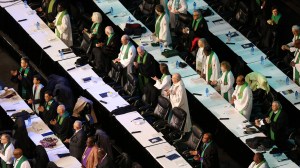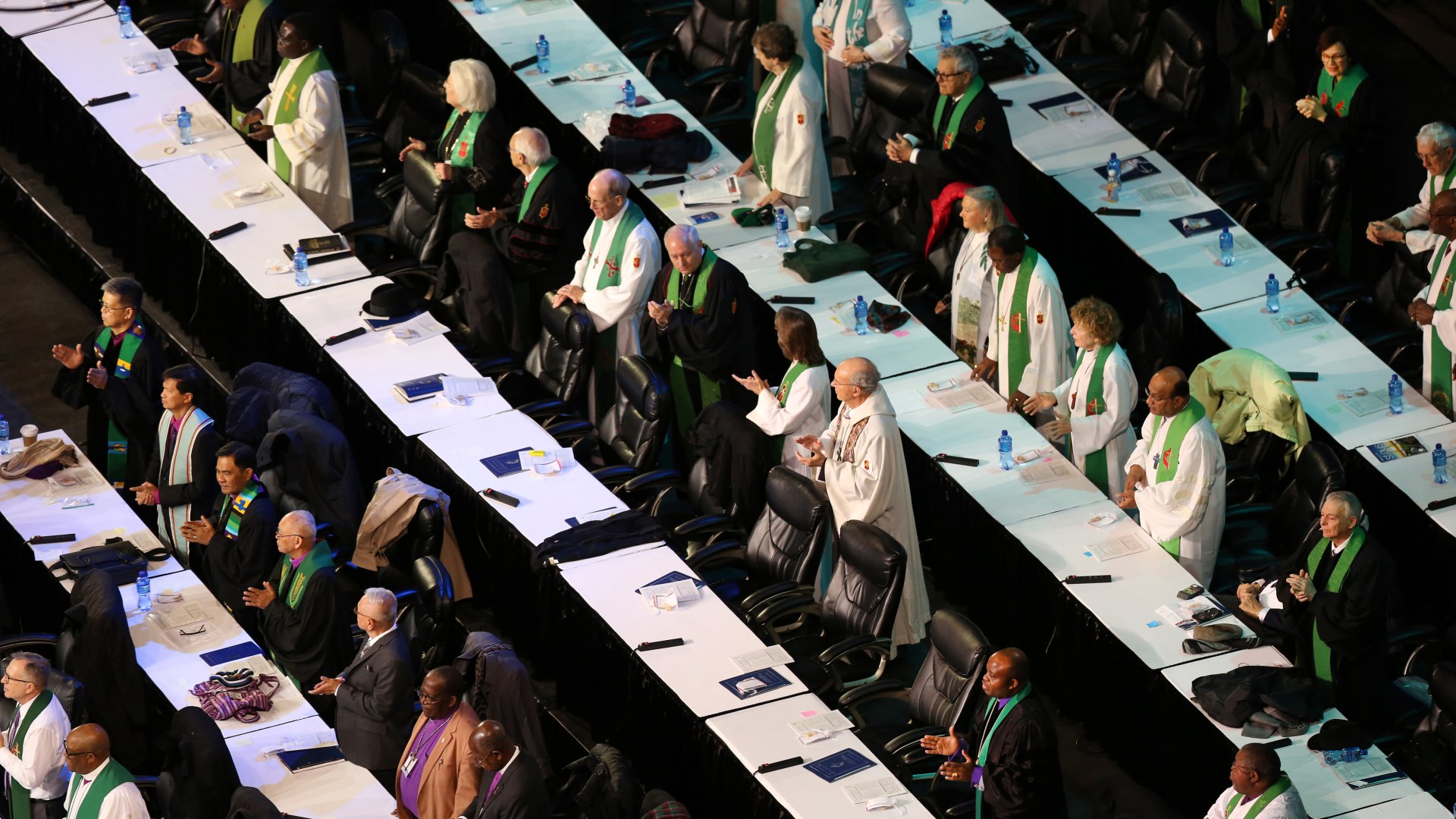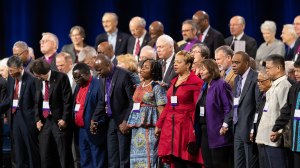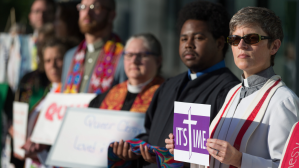In this series

Factions in the United Methodist Church (UMC) have reached an initial settlement around its intractable division over LGBT marriage and ordination—offering $25 million to a group of conservative congregations who want to break away and form a new denomination.
For both conservatives and progressives in the church, this compromise comes as an answer to prayer.
Various groups were slated to once again propose different plans for a split at the UMC’s general conference in May, but under the new agreement, they will abandon the proposals and put their full support behind the Protocol of Reconciliation & Grace Through Separation, which was announced Friday.
The eight-page statement details the terms of the split for the nation’s largest mainline denomination:
The undersigned propose restructuring The United Methodist Church by separation as the best means to resolve our differences, allowing each part of the Church to remain true to its theological understanding, while recognizing the dignity, equality, integrity, and respect of every person.
The protocol will still need to be approved by the UMC’s legislative body, but has unanimous support from a diverse 16-member mediation team, including representatives from “UMCNext; Mainstream UMC; Uniting Methodists; The Confessing Movement; Good News; The Institute on Religion & Democracy; the Wesleyan Covenant Association; Affirmation; Methodist Federation for Social Action; Reconciling Ministries Network; and the United Methodist Queer Clergy Caucus; as well as bishops from the United States and across the world.”
“This is very likely to bring to an end this dysfunction that we have suffered through for the past 47 years,” said Rob Renfroe, president and publisher of Good News and pastor of adult discipleship at The Woodlands UMC outside of Houston. “We were never going to find a way to move forward together. Our ultimate goal of setting each other free to do ministry as we believe God would have us do has come to fruition.”
The 12.5-million-member UMC has been in a standoff over LGBT issues for decades, culminating in a vote in favor of its traditional position against same-sex marriage and gay clergy during a special session last year. As a result, some left the UMC, some continued to defy the UMC positions outright, and some challenged the legality of the vote in the denomination’s court—ultimately putting the question of how to move forward before the delegation once again in 2020.
The result of months of negotiation, the new protocol creates a quick, “clean break” for a new, traditionalist denomination that has yet to be created but will receive a $25 million sum at its inception.
“The assumption for everybody involved in this agreement was that the Wesleyan Covenant Association (WCA) would launch the traditional denomination referenced in the protocol,” said Virginia pastor Keith Boyette, WCA president. The WCA includes 125,000 people in 1,500 churches who favor the UMC’s traditional marriage stance.
For years, they have feared they have reached a point of “irreconcilable differences” with more progressive factions in the UMC, and WCA leaders have prepared for the launch of a new denomination. As part of the agreement, the WCA will not make further claims for money beyond the $25 million.
In addition, the protocol sets aside $2 million for other new denominations that are created pursuant to its guidelines. Regional bodies of the UMC, known as annual conferences, would remain in the UMC unless they vote (by 57% majority) to join another denomination prior to July 1, 2021. In the meantime, the protocol would put a moratorium on charges against clergy and members who have violated the current prohibitions around homosexuality.
In previous attempts to formulate a plan to split, ownership of property has been a sticking point. The new protocol provides provisions for churches that leave to “retain their assets and liabilities” and for all clergy and lay employees to keep their pensions.
Pastor Tom Berlin expressed the relief felt by many fellow Methodists, saying, “The United Methodist Church will have far greater possibilities for viability and vitality once this conflict is put behind us. It allows United Methodists to self differentiate and choose a future with hope that honors their theological convictions and their interpretation of Scripture.”
As CT previously reported, US Methodists tend to be more conservative than their clergy; they are twice as likely to identify as “conservative-traditional” (44%) than “liberal-progressive” (20%) and evenly split on the church’s ban on same-sex ceremonies, according to a denominational poll. Though Methodist views have shifted, Pew Research Center found that they are still less likely than mainline Protestants overall to say homosexuality should be accepted (60% of Methodists vs. 66% of mainline) or support the legalization of same-sex marriage (49% vs. 57%).
LGBT advocates in the UMC have praised the plan, looking forward to finally overcoming the stalemates over the denomination’s official stance on homosexuality. In 1972, the UMC stated that “homosexuals no less than heterosexuals are persons of sacred worth,” but “the practice of homosexuality … incompatible with Christian teaching.”
“This is exciting to me,” said Jan Lawrence, who participated in the protocol deliberations as director of the Reconciling Ministries Network. “The potential to have the anti-LGBTQ language removed in 2020 is amazing, and the agreement to start a moratorium two days ago, those are very positive things for LGBTQ United Methodists.”
The statement on the protocol was sent by the Council of Bishops Office on behalf of the mediation team, who will provide further details about the plan during a January 13 livestream.
“All of us are servants of the church and realize that we are not the primary decision makers on these matters,” said Bishop John Yambasu of Sierra Leone. “Instead, we humbly offer to the delegates of the 2020 General Conference the work which we have accomplished in the hopes that it will help heal the harms and conflicts within the body of Christ and free us to be more effective witnesses to God’s Kingdom.”














